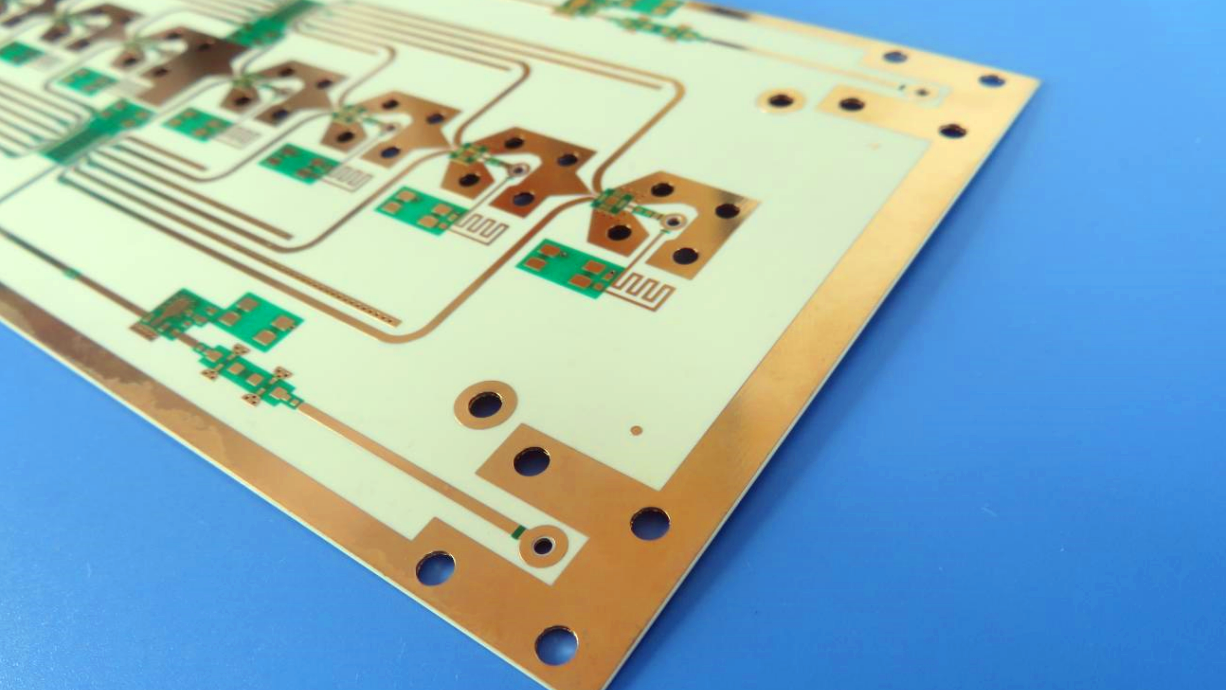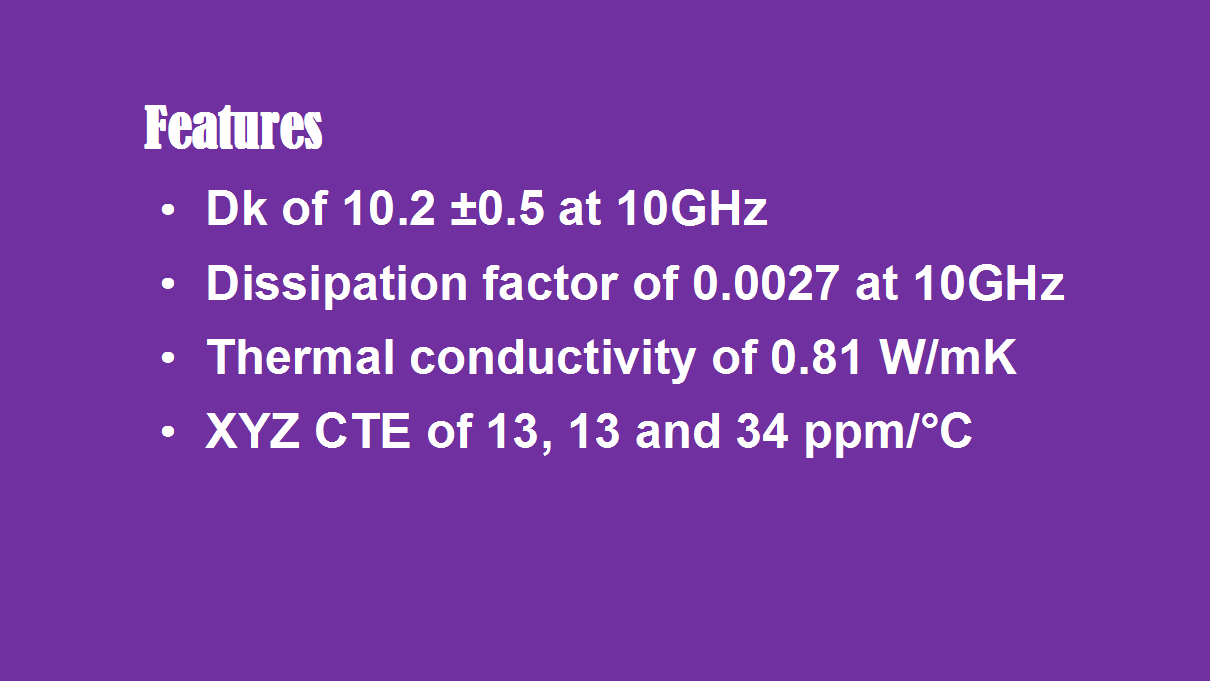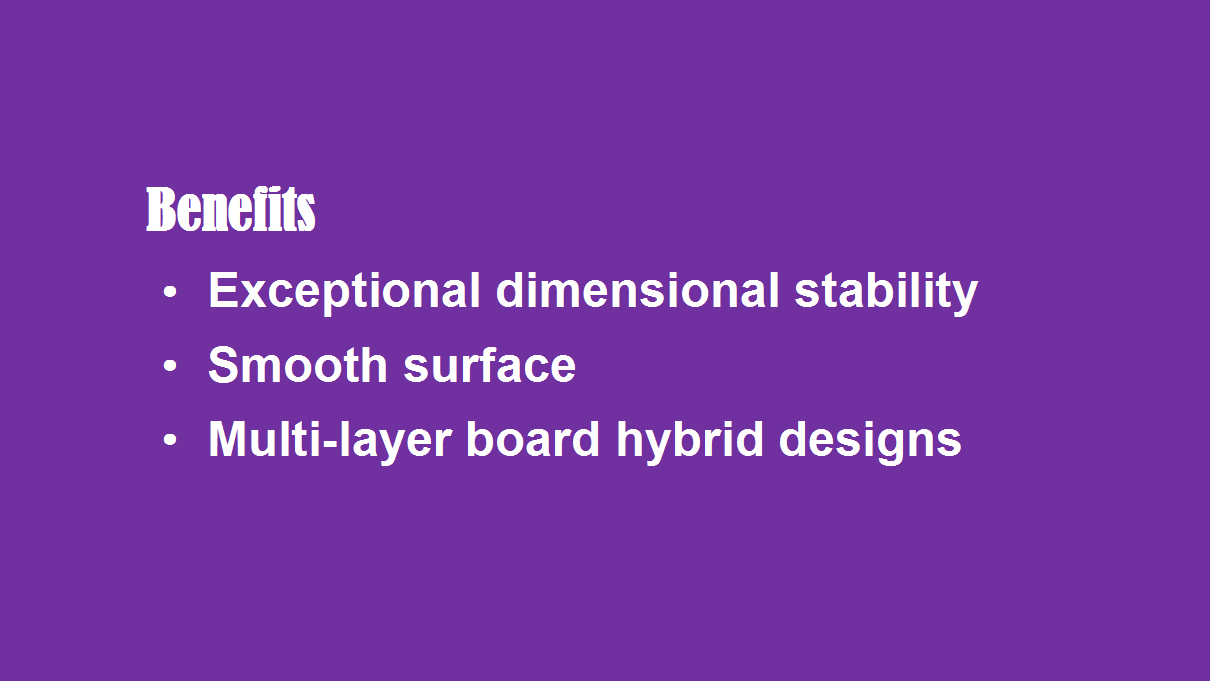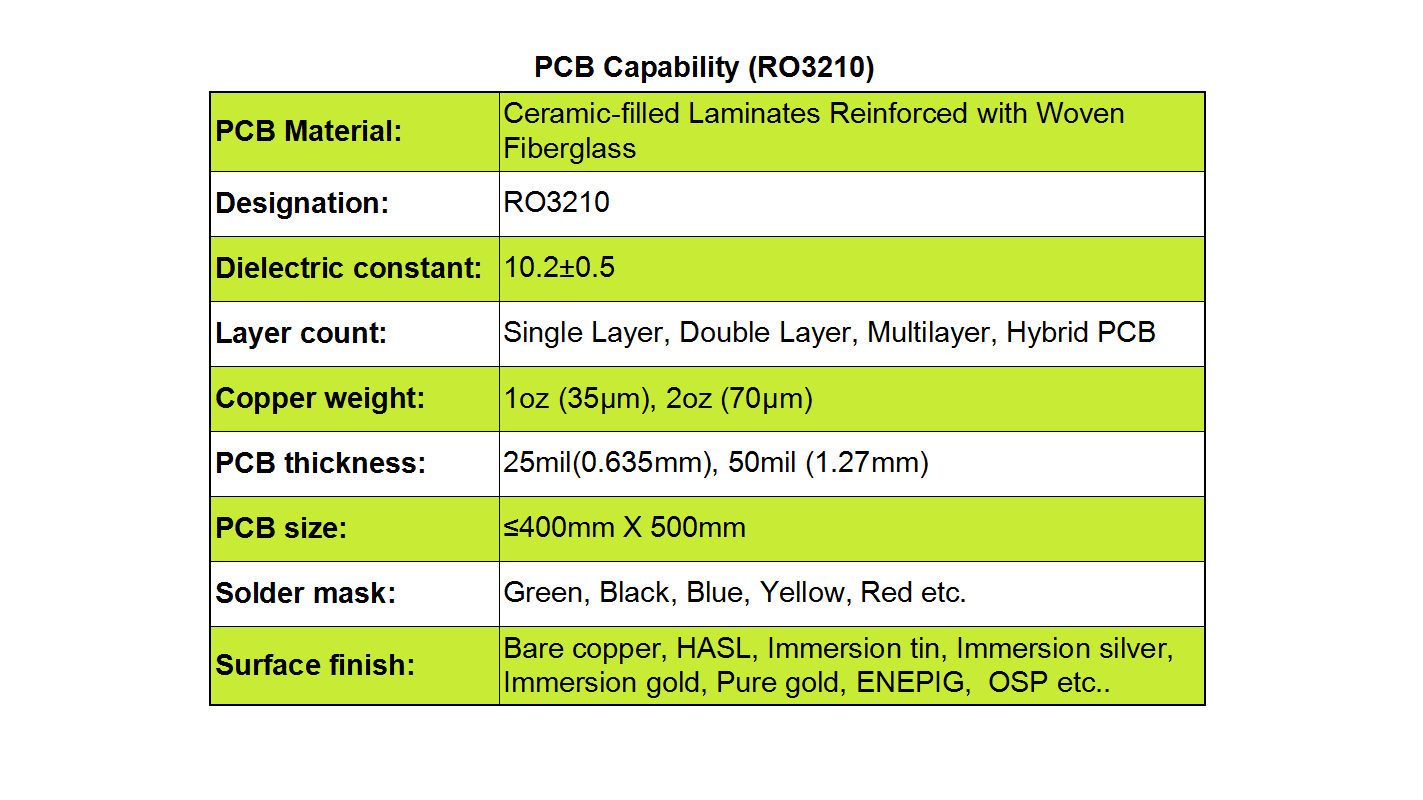RO3210 High-Frequency PCB: Features, Benefits & Applications for RF and Automotive Systems
 August 8,2025
August 8,2025
Introduction
Rogers RO3210 is a ceramic-filled, woven fiberglass laminate designed for high-frequency applications, offering exceptional electrical efficiency and mechanical strength at competitive prices. As part of the RO3000 series, RO3210 excels in mechanical stability, making it a top choice for demanding industries.

Key Features & Benefits
High Dielectric Constant (Dk): 10.2 (±0.5) enables compact and miniaturized designs.
Low Signal Loss: Dissipation factor of 0.0027 at 10 GHz ensures minimal distortion.
Thermal Performance: High thermal conductivity (0.81 W/mK) and excellent CTE values enhance reliability.
Dimensional Stability: Ensures precision and boosts production yields.
Surface Smoothness: Supports finer line etching for intricate circuit designs.
Hybrid Compatibility: Integrates seamlessly into epoxy multi-layer boards for versatile configurations.


PCB Manufacturing Capabilities
Layer Options: Single-layer to complex multi-layer and hybrid designs.
Copper Weights: 1oz (35µm) and 2oz (70µm) for tailored conductivity.
Thickness Options: 25 mils (0.635mm) and 50 mils (1.27mm).
Max Size: Up to 400mm x 500mm.
Customization: Solder mask colors (green, black, blue, etc.) and finishes (HASL, ENIG, OSP, etc.).

Applications
Ideal for:
Automotive: Collision avoidance systems, GPS antennas.
Wireless Communications: Telecommunications systems, microstrip patch antennas.
Satellite Technology: Direct broadcast satellites and other high-frequency RF applications.
